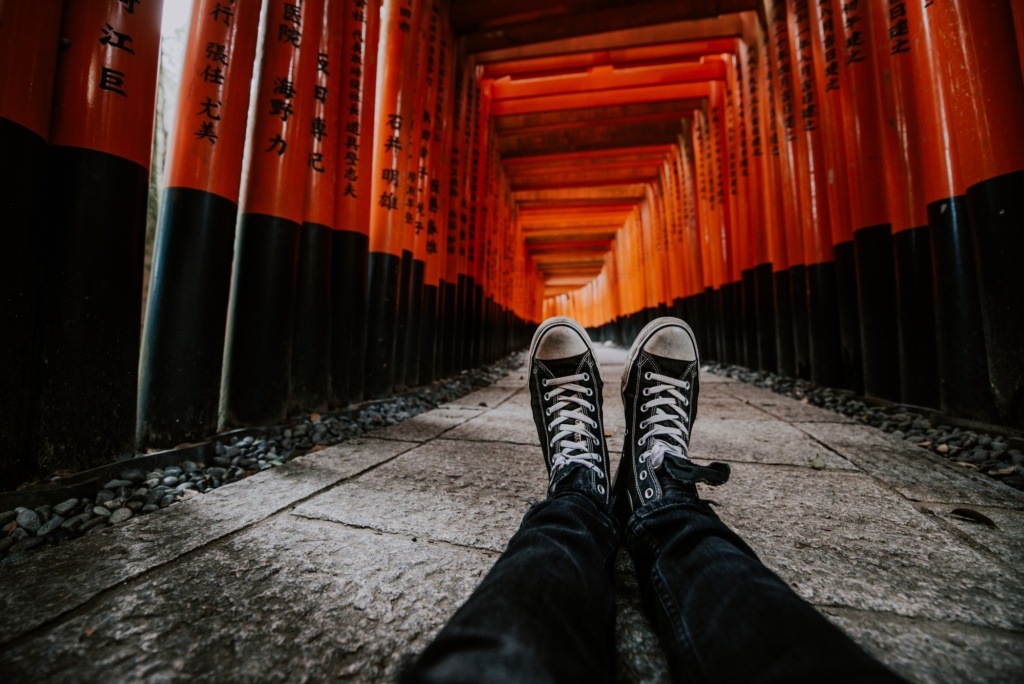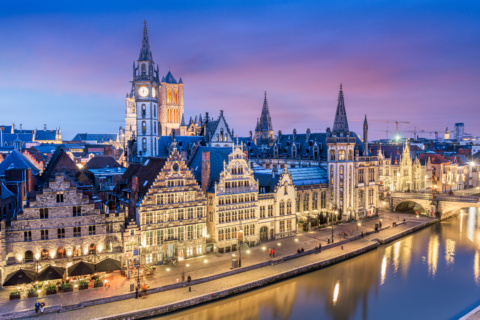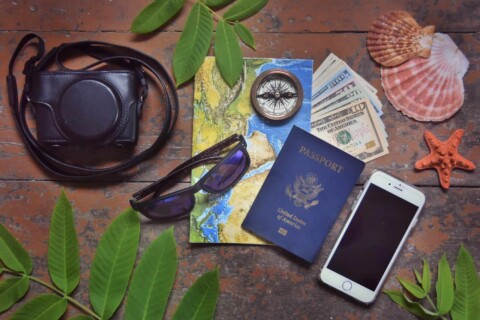Something incredible is happening in the world of travel right now. While families are still planning their annual vacations and couples are booking romantic getaways, there’s a quiet revolution taking place that’s reshaping how we think about exploring the world. Solo travel isn’t just trending – it’s absolutely exploding, and the numbers tell a fascinating story.
According to Google Trends data, search interest for “solo travel” in the United States reached all-time highs in 2025, clocking in at roughly 1.5 times higher than searches for “travel with kids.” Think about that for a moment. More people are actively seeking information about traveling alone than they are about family vacations. This isn’t just a blip on the radar; it’s a fundamental shift in how we approach adventure, self-discovery, and the art of exploration.
The Great Solo Awakening
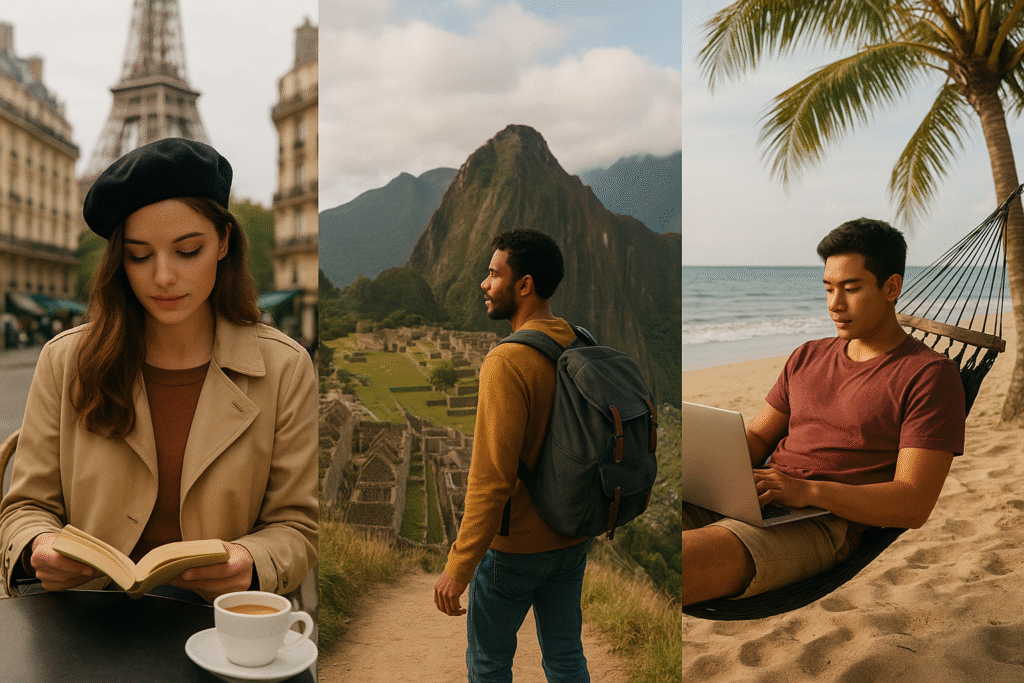
What’s driving this surge in solo travel interest? The answer is beautifully complex and deeply personal for millions of people. We’re living in an era where traditional life timelines have become more fluid. People are taking gap years at 30, switching careers at 45, and discovering new passions at every stage of life. Solo travel has become the perfect companion to this journey of self-discovery.
The digital revolution has made solo travel not just possible, but incredibly accessible. Gone are the days when traveling alone meant carrying stacks of guidebooks and hoping to find someone who spoke your language at the train station. Today’s solo travelers are equipped with translation apps, GPS navigation, instant communication tools, and access to local communities through platforms like Meetup, Facebook Groups, and specialized travel apps.
But beyond the practical advantages, there’s something profoundly liberating about solo travel that’s resonating with people across all age groups and backgrounds. When you travel alone, every decision is yours. Want to spend three hours in a small museum that catches your eye? Go for it. Feel like changing your entire itinerary because you heard about an amazing festival in the next town over? Nothing’s stopping you. This level of autonomy and spontaneity is incredibly appealing in our increasingly structured and connected world.
The Digital Nomad Connection

The rise in solo travel interest is intrinsically linked to the booming digital nomad movement. Remote work isn’t just a pandemic-era novelty anymore; it’s a permanent fixture in how many people approach their careers. This shift has opened up possibilities that previous generations could only dream of. Why work from a cramped apartment in an expensive city when you can set up your office on a beach in Portugal or a mountain café in Colombia?
Digital nomadism and solo travel feed into each other beautifully. When you’re location-independent, you have the flexibility to travel at your own pace, stay in places as long as they inspire you, and leave when you’re ready for the next adventure. You’re not constrained by coordinating schedules with travel companions or adhering to someone else’s idea of the perfect vacation length.
The infrastructure supporting this lifestyle has exploded in recent years. Co-working spaces can now be found in virtually every major city and many smaller destinations around the world. Platforms like Nomad List provide detailed information about internet speeds, cost of living, and community factors for hundreds of destinations worldwide. Services like Selina and Outsite offer accommodation specifically designed for digital nomads, combining comfortable living spaces with productive work environments and built-in communities.
Safety First: Addressing the Elephant in the Room
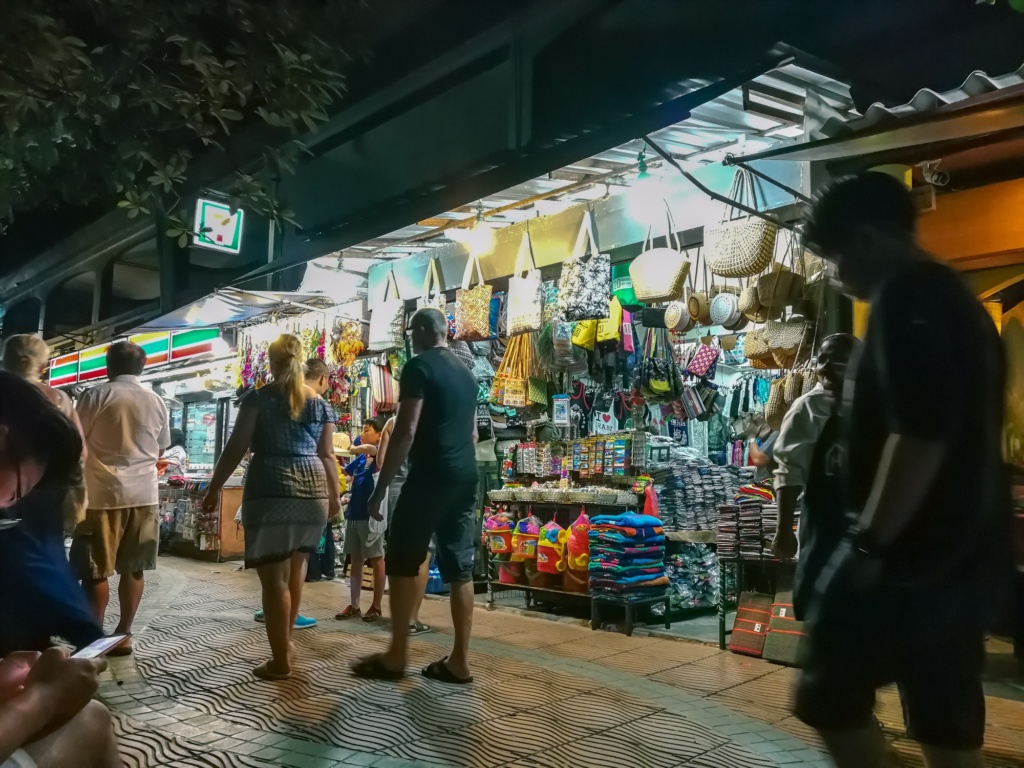
One of the most common searches related to solo travel involves safety concerns, and rightfully so. Traveling alone does require additional awareness and preparation, but it doesn’t have to be dangerous or scary. In fact, many experienced solo travelers report feeling safer and more aware of their surroundings when they’re on their own, simply because they’re more tuned in to their environment.
The key to safe solo travel lies in preparation, common sense, and trusting your instincts. Research your destination thoroughly before you go. Understand local customs, potential risks, and cultural norms. Share your itinerary with someone back home and check in regularly. Stay in well-reviewed accommodations in safe neighborhoods, especially when you’re first getting comfortable with solo travel.
Technology has become an incredible ally for solo traveler safety. Apps like TripWhistle Global SOS provide emergency numbers for any location worldwide. Find My Friends or Google’s location sharing let trusted contacts keep tabs on your general whereabouts. Translation apps can help you communicate in emergency situations, and ride-sharing apps provide safer transportation options in many destinations.
But perhaps most importantly, solo travel often leads to increased confidence and self-reliance. Many solo travelers report that their first trip alone was transformative not just for their travel experiences, but for their overall approach to life challenges. There’s something empowering about navigating a foreign country, solving unexpected problems, and creating amazing experiences entirely on your own.
The Art of Destination Selection
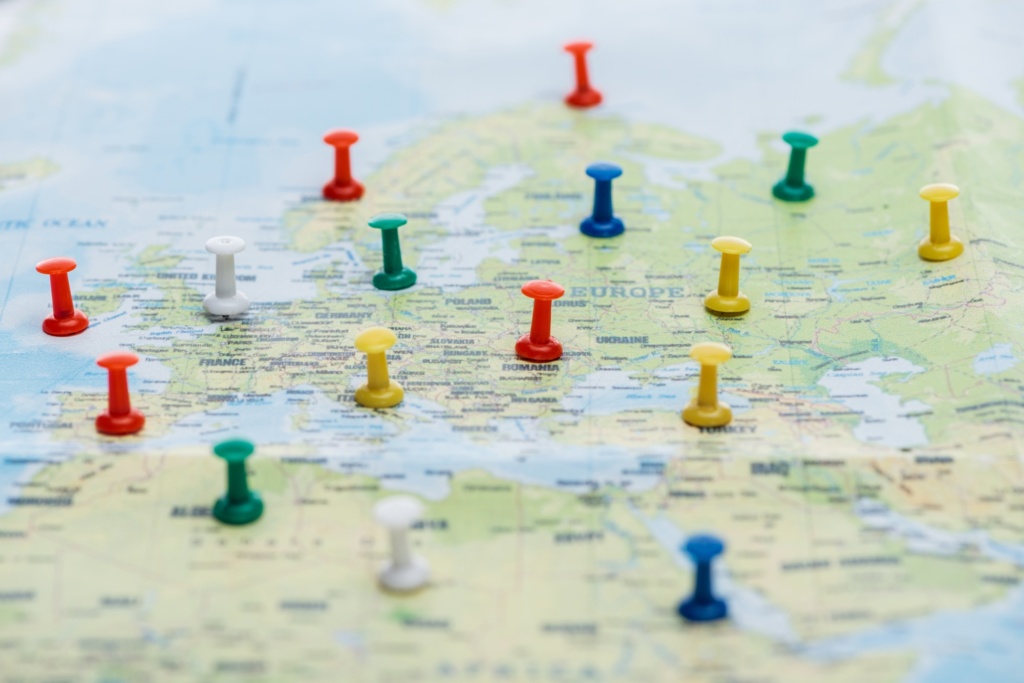
Choosing the right destination for solo travel is both an art and a science, and it’s one of the most searched topics in the solo travel space. The best solo travel destinations aren’t necessarily the most popular tourist spots or the most exotic locations. They’re places that offer the right combination of safety, accessibility, interesting experiences, and opportunities for both solitude and social connection when desired.
For first-time solo travelers, countries with well-developed tourism infrastructure often provide the perfect training ground. Places like Japan offer incredible experiences with excellent public transportation, widespread English signage, and a culture that values politeness and helping visitors. New Zealand provides stunning natural beauty with a laid-back, English-speaking culture that’s welcoming to solo adventurers. Iceland has become a solo travel hotspot thanks to its safety record, dramatic landscapes, and compact size that makes it easy to navigate.
European destinations remain perennial favorites for solo travelers. The extensive train network makes it easy to change plans on the fly, and the prevalence of hostels provides built-in opportunities to meet other travelers. Cities like Amsterdam, Barcelona, and Prague offer rich cultural experiences with excellent walkability and safety records.
For more adventurous solo travelers, Southeast Asia has long been considered the gold standard. The region offers incredible value for money, diverse cultures, delicious food, and a well-established backpacker trail that makes it easy to meet fellow travelers. Thailand, Vietnam, and Malaysia are particularly solo-travel-friendly, with good infrastructure and welcoming local cultures.
Building Community on the Road
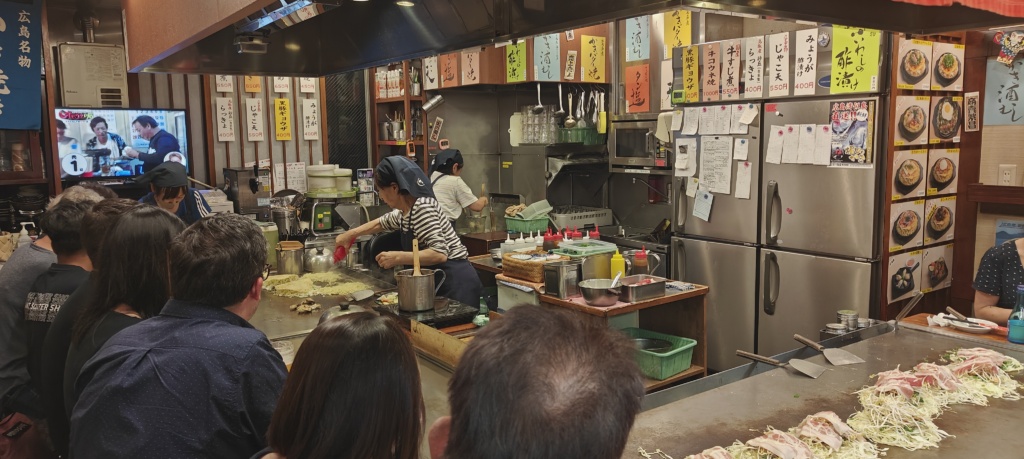
One of the most searched aspects of solo travel involves finding community and avoiding loneliness. This concern is completely valid – humans are social creatures, and extended periods of solitude can become challenging even for the most introverted travelers. The good news is that solo travel often leads to more meaningful social connections than traveling in a group, simply because you’re more approachable and open to new experiences.
The key is knowing where and how to find your travel tribe. Hostels remain one of the best places to meet fellow travelers, but they’re not just for college students anymore. Many hostels now offer private rooms with shared common areas, perfect for solo travelers who want privacy but also social opportunities. Look for hostels that organize activities, pub crawls, or group dinners.
Online communities have revolutionized how solo travelers connect. Facebook groups dedicated to specific destinations or travel styles can provide real-time advice and meetup opportunities. Reddit communities like r/solotravel offer a wealth of experiences and advice from fellow solo adventurers. Apps like Meetup help you find like-minded people in your destination, whether you’re interested in hiking, photography, food tours, or language exchange.
For those seeking more structured social opportunities, group tours designed for solo travelers have become increasingly popular. Companies like Intrepid Travel and G Adventures offer small group tours that attract independent travelers who want to explore with others while maintaining their autonomy.
The Economic Freedom Factor
Solo travel offers unique economic advantages that contribute significantly to its growing popularity. When you’re traveling alone, you have complete control over your budget and spending decisions. Want to splurge on that amazing restaurant everyone’s talking about? Go for it. Prefer to save money by staying in budget accommodations and cooking your own meals? That’s your choice too.
This financial flexibility extends to timing as well. Solo travelers can take advantage of last-minute deals, off-season pricing, and mid-week travel discounts that might not work for couples or groups. You can extend your stay in affordable destinations and cut short expensive ones based on your budget and preferences.
The rise of the sharing economy has particularly benefited solo travelers. Platforms like Airbnb often offer better per-person rates for solo travelers than traditional hotels, especially for longer stays. Couchsurfing, while less popular than it once was, still provides opportunities for free accommodation and local connections for budget-conscious solo travelers.
Many destinations also offer better value for solo travelers than popular family or couple destinations. Southeast Asia, Eastern Europe, Central America, and parts of South America provide incredible experiences at a fraction of the cost of traditional Western vacation spots.
The Personal Growth Journey
Perhaps the most compelling aspect of the solo travel trend is its transformative potential. Solo travel isn’t just about seeing new places; it’s about discovering new aspects of yourself. When you’re traveling alone, you can’t hide behind companions or rely on others to handle challenging situations. This necessity breeds confidence, resourcefulness, and self-reliance that extends far beyond your travels.
Many solo travelers report that their experiences abroad fundamentally changed their perspective on what they’re capable of achieving. Successfully navigating a complex transportation system in a country where you don’t speak the language, making friends with locals despite cultural barriers, or handling unexpected challenges with grace and humor – these experiences build a deep sense of personal capability that influences every area of life.
Solo travel also provides unique opportunities for introspection and mindfulness. Without the distractions of constant companionship, you’re more likely to notice details, engage with your surroundings, and process your experiences more deeply. Many solo travelers find that their trips become periods of significant personal reflection and growth.
The creativity boost that comes from solo travel is well-documented. Exposure to new cultures, ways of thinking, and environmental stimuli sparks creativity and innovation. Many artists, writers, entrepreneurs, and creative professionals credit solo travel experiences with breakthrough moments in their work.
Technology: The Solo Traveler’s Best Friend
The explosion in solo travel interest is inextricably linked to technological advances that have made independent travel safer, easier, and more connected than ever before. Your smartphone has essentially become a personal travel assistant, navigator, translator, and communication hub all in one device.
Navigation apps like Google Maps work offline and can guide you through complex public transportation systems in dozens of languages. Translation apps like Google Translate can instantly translate text through your camera, making menus, signs, and documents accessible regardless of language barriers. Apps like Citymapper provide detailed public transportation information for major cities worldwide.
For accommodation, platforms like Booking.com, Hostelworld, and Airbnb allow you to book, modify, and cancel accommodations on the fly. Travel apps like Skyscanner and Kayak make it easy to find and book flights, often with flexible date options that help you take advantage of price fluctuations.
Banking and finance apps have eliminated many of the traditional headaches of international travel. Cards like Charles Schwab or Capital One don’t charge foreign transaction fees, and apps like Wise (formerly TransferWise) provide excellent exchange rates for currency conversion.
Safety and communication apps provide peace of mind for solo travelers and their loved ones back home. Apps like WhatsApp and Telegram work over WiFi, allowing free international communication. Skype and FaceTime enable face-to-face conversations with family and friends regardless of time zones.
Sustainable Solo Travel
As solo travel grows in popularity, there’s an increasing awareness of its environmental and social impact. Solo travelers are uniquely positioned to make sustainable choices that can significantly reduce their travel footprint while often enhancing their travel experiences.
Transportation choices make the biggest impact on travel sustainability. Solo travelers can easily choose overland transportation options like trains and buses, which typically have much lower carbon footprints than flying. When flights are necessary, solo travelers can more easily choose direct routes and budget airlines that maximize passenger capacity.
Accommodation choices also matter significantly. Solo travelers often gravitate toward smaller, locally-owned guesthouses, hostels, and bed-and-breakfasts rather than large international hotel chains. These choices typically provide more authentic cultural experiences while keeping tourism revenue within local communities.
The growing “slow travel” movement aligns perfectly with solo travel preferences. Rather than rushing through multiple destinations, many solo travelers are choosing to spend weeks or months in single locations, deeply exploring regions and forming meaningful connections with local communities. This approach reduces transportation-related emissions while providing more immersive cultural experiences.
Solo travelers are also more likely to eat at local restaurants, shop at local markets, and participate in community-based tourism activities. These choices not only provide more authentic experiences but also ensure that tourism spending directly benefits local communities rather than international corporations.
The Future of Solo Travel
As we look toward the future, several trends suggest that solo travel will continue its explosive growth trajectory. Remote work is becoming increasingly normalized, with many companies adopting permanent flexible work policies that enable location independence. Younger generations are prioritizing experiences over possessions, and solo travel aligns perfectly with this value system.
Virtual and augmented reality technologies are beginning to enhance solo travel experiences in fascinating ways. Apps that overlay historical information onto current locations, provide real-time cultural context, and offer immersive language learning experiences are already emerging. These technologies will likely make solo travel even more accessible and enriching for people with different interests and comfort levels.
The growth of co-working and co-living spaces specifically designed for digital nomads suggests that the infrastructure supporting long-term solo travel will continue to expand and improve. Cities around the world are recognizing the economic benefits of attracting location-independent workers and are developing policies and amenities to cater to this growing demographic.
Travel companies are also adapting to the solo travel trend. Airlines are reducing or eliminating single supplement fees, hotels are designing rooms and common areas with solo travelers in mind, and tour companies are creating more options specifically for independent travelers who want occasional group experiences.
Overcoming Common Solo Travel Challenges
While solo travel offers incredible rewards, it’s important to acknowledge and address the common challenges that new solo travelers often face. Loneliness is perhaps the most frequently cited concern, but it’s also often the most overblown. Many solo travelers find that they’re rarely truly alone – solo travelers tend to be more approachable and open to meeting new people than those traveling in groups.
Decision fatigue can be a real challenge when every choice from where to eat breakfast to which museum to visit is entirely up to you. Successful solo travelers learn to embrace both spontaneity and planning. Having a loose framework for your day while remaining open to unexpected opportunities strikes the right balance.
Safety concerns, while valid, shouldn’t be paralyzing. The key is preparation, awareness, and trusting your instincts. Most solo travel experiences are not only safe but transformatively positive. The confidence gained from successfully handling minor challenges and unexpected situations often far outweighs any temporary discomfort.
Language barriers, while they can be challenging, often lead to some of the most memorable and heartwarming travel experiences. People around the world are generally helpful and patient with travelers making an effort to communicate. Translation technology has also made these interactions much easier than they once were.
The Solo Travel Community
One of the most remarkable aspects of the solo travel boom is the supportive community that has emerged around it. Online forums, social media groups, and travel blogs dedicated to solo travel provide endless inspiration, practical advice, and emotional support for both new and experienced solo travelers.
Instagram accounts like @expertvagabond, @girlvsglobe, and @johnnyfd showcase the diversity of solo travel experiences and provide practical tips for followers. YouTube channels offer detailed destination guides, packing tutorials, and honest reviews of solo travel experiences.
Travel blogs like Nomadic Matt, Expert Vagabond, and The Blonde Abroad provide comprehensive guides, budget breakdowns, and personal stories that help demystify solo travel for newcomers.
Reddit communities, particularly r/solotravel, offer real-time advice, destination-specific information, and moral support for travelers dealing with challenges on the road. The community aspect extends to meetups and gatherings, with solo travelers organizing informal get-togethers in destinations around the world.
Making the Leap: Your First Solo Adventure
If you’re feeling inspired by the solo travel trend but haven’t taken the plunge yet, there’s no better time than now to start planning your first solo adventure. The key is to start with a destination and timeframe that feels manageable and exciting rather than overwhelming.
Consider beginning with a domestic solo trip or a destination where language won’t be a significant barrier. This allows you to focus on the experience of traveling alone without adding unnecessary complexity. A long weekend in a nearby city, a week-long road trip through your own country, or a short international trip to an English-speaking destination can provide an excellent introduction to solo travel.
Research is your friend, but don’t let perfect planning prevent you from taking action. Read recent reviews of accommodations, understand basic local customs and laws, and have a rough itinerary, but leave room for spontaneity and discovery. Some of the best solo travel experiences come from unexpected opportunities and serendipitous encounters.
Pack lighter than you think you need. Solo travelers need to be able to manage their luggage independently, and overpacking creates unnecessary stress and limits your mobility. Most destinations have stores where you can buy anything you’ve forgotten, and many solo travelers find that packing light actually enhances their travel experience.
Trust yourself and your instincts. Solo travel builds confidence precisely because it requires you to rely on your own judgment and problem-solving abilities. Most challenges you’ll encounter will be minor inconveniences rather than serious problems, and successfully handling these situations will boost your confidence for future travels.
The Ripple Effect
The impact of solo travel extends far beyond the actual trip itself. Many solo travelers report that their experiences abroad fundamentally change their approach to life at home. The confidence gained from navigating foreign countries alone often translates into greater willingness to take on professional challenges, pursue new relationships, or make significant life changes.
Solo travel experiences frequently influence career decisions. Exposure to different cultures and ways of life can spark new professional interests, lead to international business opportunities, or simply provide the confidence to pursue previously intimidating career goals. Many successful entrepreneurs and creative professionals credit solo travel experiences with providing crucial perspective and inspiration for their work.
The problem-solving skills developed through solo travel prove valuable in all areas of life. When you’ve successfully figured out complex public transportation systems, communicated despite language barriers, and adapted to unexpected situations while traveling alone, everyday challenges at home often seem much more manageable.
Solo travel also tends to clarify personal values and priorities. The experience of being completely self-reliant, combined with exposure to different ways of living, often helps travelers understand what truly matters to them. Many solo travelers return home with a clearer sense of their goals and a stronger commitment to pursuing experiences over possessions.
Conclusion: The Journey Continues
The solo travel revolution of 2025 represents more than just a tourism trend; it reflects a fundamental shift in how people approach personal growth, work-life balance, and the pursuit of meaningful experiences. As search interest continues to climb and infrastructure continues to develop to support independent travelers, solo travel is becoming not just an option but a preferred way to explore the world.
Whether you’re a seasoned traveler considering your first solo adventure or someone who’s never traveled beyond your home country, the current moment offers unprecedented opportunities for safe, enriching, and transformative solo travel experiences. The community support, technological tools, and destination infrastructure have never been better, and the potential for personal growth and incredible experiences has never been greater.
The question isn’t whether solo travel will continue to grow – the trends make that clear. The question is whether you’ll join the millions of people discovering that some of life’s most meaningful adventures happen when you’re brave enough to explore the world on your own terms. Your solo journey awaits, and there has never been a better time to take that first step.
Final image suggestion: A panoramic sunset view from a solo traveler’s perspective – perhaps hands holding a camera or journal in the foreground, capturing a beautiful landscape that represents the endless possibilities that await solo adventurers
Ready to start your solo travel journey? Check out these helpful resources:
- Solo Travel Society – Community and resources for solo travelers
- Nomadic Matt’s Solo Travel Guide – Comprehensive beginner’s guide
- r/solotravel – Active community for advice and inspiration
- Travel.gov – Official U.S. government travel advisories and safety information
- Meetup – Find local groups and activities in your destination
The world is waiting – why not explore it on your own terms?




